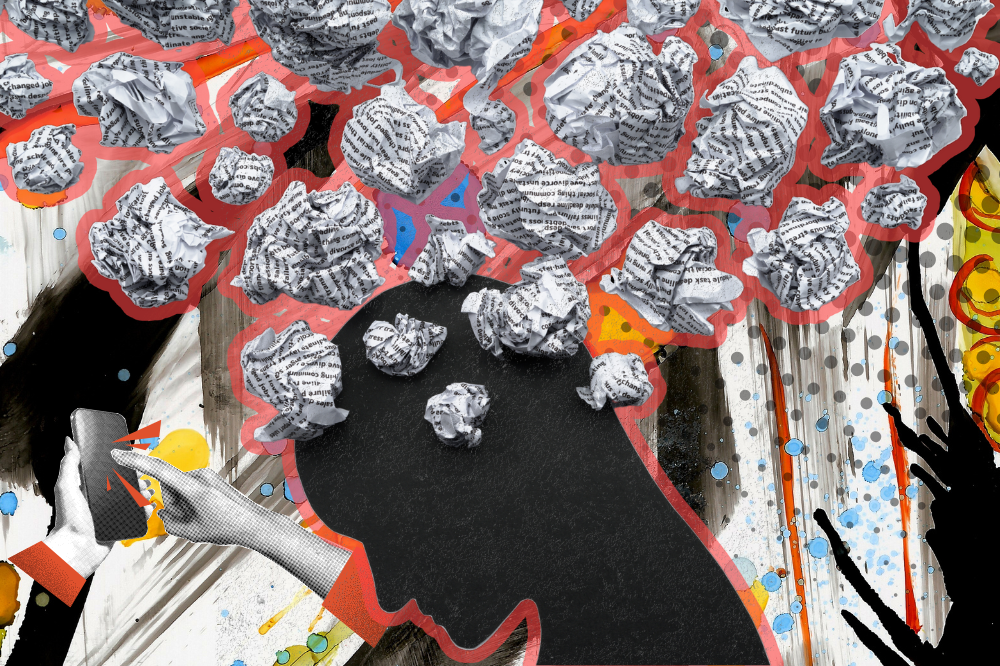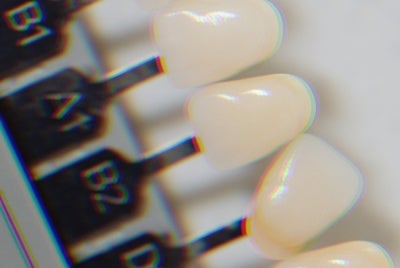Self-diagnosing mental health through social media: A swipe, like and panic away
A few minutes scrolling through your Instagram or TikTok feed, and suddenly you’re convinced you have every mental health condition under the sun.

Photo for illustrative purposes only. Photo: Canva
A few minutes scrolling through your Instagram or TikTok feed, and suddenly you’re convinced you have every mental health condition under the sun.
The minute you see that one video or post that seems to describe you to a T, you find yourself wondering, “Am I depressed? Is this ADHD (Attention Deficit Hyperactivity Disorder)? Is my anxiety out of control?”
Before you know it, you’ve self-diagnosed yourself with a cocktail of disorders, and now you’re on WebMD googling what kind of treatment you’ll need for your new collection of conditions.
Welcome to the wonderful, chaotic world of diagnosing yourself through social media.
It can be a bit confusing out there.
According to child and adolescent psychiatrist Dr Subash Kumar Pillai, improving awareness about mental health on social platforms is one thing, but making a formal diagnosis after watching an Instagram reel is not really the way to go.
“Many symptoms of mental illness are generic, nothing is really specific, unlike a medical illness, for example, a fever or a cough.
“Mental health symptoms are often vague, and it seems like we can experience them in so many ways,” he said.
THE VIRAL “DIAGNOSIS” TRAP
It starts innocently enough.
You’re scrolling through your TikTok feed, minding your own business, when a video pops up with the headline: “Signs You Might Have ADHD (and Didn’t Know It)”.
You watch, and lo and behold, you tick off every single symptom listed.
Difficulty focusing? Check. Constantly losing your keys? Check. Over-committing to things you can’t finish? Check, check, check.
And just like that, you’re convinced you’ve unlocked the secret to your scattered, always-late, occasionally forgetful self.
But here’s the thing—ADHD is not a trendy aesthetic.
It’s not just “that person who can’t sit still” or “someone who’s disorganised.”
It’s a complex condition that takes time to evaluate and understand.
So, no, that one viral video probably doesn’t hold the magic key to your soul’s real struggles.
As Dr Subash put it: “It is always important to seek professional help to make a formal diagnosis. There are so many questions that are not available in a 10-second reel, and only a person who is trained and experienced will be able to make a diagnosis.”
WHY WE DO IT (AND WHY IT’S TEMPTING)
Social media makes it so easy, doesn’t it? Everything is bite-sized, digestible, and just relatable enough for you to start second-guessing your entire existence.
Mental health topics are more mainstream than ever, and that’s great, but it can also create a lot of pressure to “diagnose” yourself the minute you feel something a little off.
We love labels. We love the comfort of putting things in boxes, even if those boxes don’t actually fit us.
When you hear someone else’s experience that mirrors your own, it feels validating.
It’s like you finally have an answer to the question of why you’re not feeling like yourself.
And that, friends, is a powerful feeling.
But it’s also dangerous.
It’s the equivalent of diagnosing yourself with the flu after sneezing twice and feeling a little sluggish.
Sure, it might be true, but it could also be allergies, exhaustion or the fact that you didn’t get enough sleep last night.
Social media can give you the illusion of clarity, but it’s just that—an illusion.
And, like any illusion, it’s a trick that’s more likely to lead you down a path of confusion, self-doubt and possibly even procrastination.
Trust me, you don’t need to be self-diagnosing to avoid dealing with your problems—there are easier ways to procrastinate!
Dr Subash said self-diagnosing also makes a mockery of mental health or any medical health professionals’ qualifications.
“It really takes more than just reading or observing something but also first-hand training from other experts and also experience.
It’s not as simple as watching TikTok and making a diagnosis,” he said.
THE RISK: OVERSIMPLIFICATION AND HARMFUL ASSUMPTIONS
When we dive deep into self-diagnosis, we’re often looking for simple solutions to complicated problems.
Mental health conditions are rarely as straightforward as a viral post might suggest.
They don’t exist neatly in bullet points or Instagram captions.
Anxiety isn’t just about feeling stressed about work. Depression isn’t just about “feeling sad.”
The emotional and psychological nuances of these conditions can’t be captured in a quick reel or meme.
And let’s be real: social media doesn’t help by turning mental health conditions into trendy, oversimplified hashtags.
ADHD isn’t just about being “always on the go” or “hyperactive.”
It’s about how your brain processes information in ways that make simple tasks incredibly hard.
Depression isn’t just about being “down in the dumps.”
It’s a persistent, exhausting condition that affects your energy, motivation and ability to see the world in anything but a fog.
Anxiety isn’t just about worrying before a big presentation—it’s about living with the constant undercurrent of fear, the kind that makes it hard to breathe even on a good day.
By reducing these complex conditions to one-dimensional “symptoms” or punchy catchphrases, we risk trivialising what people actually experience.
And while it’s okay to feel seen in a post, it’s important to remember that mental health is an intricate puzzle that requires professional insight—not a quick fix found in a meme.
THE CURE: PROFESSIONAL HELP (SORRY, NOT SORRY)
Let’s be real: self-diagnosis can be tempting, but it’s not a substitute for real help.
That cute little video might make you feel understood, but it can’t provide the depth of understanding you need to actually manage your mental health.
When you self-diagnose, you’re not just missing the mark; you’re also avoiding the real work of addressing what’s going on with you—under the guidance of a professional.
Therapists, counsellors and psychiatrists are like the personal trainers of your mental well-being.
They don’t just hand you a generic workout plan; they tailor everything to your specific needs, taking into account your unique history, experiences and challenges.
They’ll listen. They’ll guide you. They’ll help you build the skills to cope in a way that a quick scroll never can.
And yes, seeking professional help is so much more work than googling “symptoms of depression,” but it’s also a thousand times more effective.
If you really want to understand what’s going on in your head, talk to someone who can actually listen and give you tools to navigate the mess.
TO DIAGNOSE OR NOT TO DIAGNOSE? THAT IS THE QUESTION
In the end, social media will always have its place in spreading awareness and building community.
It’s a powerful tool for breaking stigma and starting conversations.
But when it comes to diagnosing yourself? Maybe we should leave that to the pros.
Because, while it might feel like a cosy shortcut to understanding your emotions, you deserve more than a hashtag diagnosis.
You deserve the full picture—and that’s something you can only get with real, professional support.
Dr Subash said it’s best to set an appointment with a qualified mental health professional and confirm the diagnosis.
“Watching a reel may give you some idea of what you might have and that's good, but to confirm and get the best treatment, it’s best to see a professional,” he said.
So, next time you see that viral post that says, “Are you an overthinker? You might have anxiety!”, take a deep breath.
It’s okay to feel seen, but don’t let that post define you.
There’s a lot more to the story—and your mental health journey is one that deserves the care and attention of someone who knows what they’re doing.
Trust me, your future self will thank you for it.
Download Sinar Daily application.Click Here!















